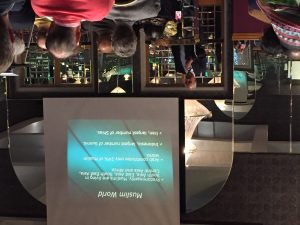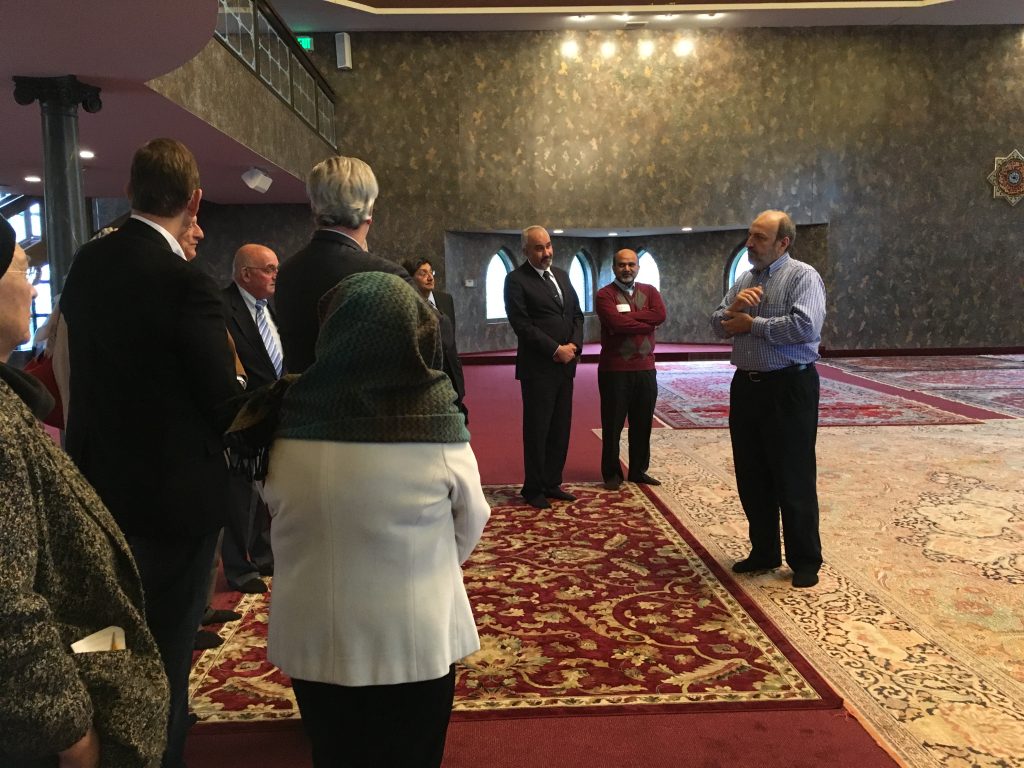Sunni Shiite: An Instructive Conversation
Last month, the council was pleased to welcome the Consul General of Pakistan, Mr. Faisal Niaz Trimizi, into Cincinnati. The council partnered with the Islamic Center of Greater Cincinnati, the Foreign Policy Leadership Council, Xavier University, and The Edward B. Brueggeman Center for Dialogue to create a discussion in the community regarding Muslim conflicts and various sources and solutions.
Mr. Trimizi gave an in depth explanation of the Muslim world and broke stereotypes such as, ‘All Muslims are Arab.’ It turns out, Arabs constitutes only 24% of Muslims.
What most may not know is that Islam is split into two denominations: Sunni and Shia. The root of the divide derives mostly from the question of leadership, hierarchy, and Mahdi. “It’s more of a political divide,” Mr. Trimizi explains.
The divide is strong in beliefs, but 84% of Muslims are Sunni and only 16% are Shia with Pakistan having the second largest Shia population. With such a large Shia population in Pakistan and the country being peaceful for thousands of years, Mr. Trimizi believes Pakistan will be a leading country in creating peace in the Islamic world.
 With the word Islam literally deriving from the word peace, what could cause such drastic issues in the Middle East? Mr. Trimizi points out the following reasons for insurgence:
With the word Islam literally deriving from the word peace, what could cause such drastic issues in the Middle East? Mr. Trimizi points out the following reasons for insurgence:
- Iranian Revolution- 1979
- Iraq War 1980 -1988
- Rise of Hezbollah
- First Gulf War 1990 -1991
- 9/11
- Afghanistan War- 2001
- 2nd Gulf War- 2003
- Syrian Conflict 2011- current
- Rise of ISIL and ISIS- current
Mr. Trimizi gives insight on what he believes is the solution:
“We (Pakistanis) find it disturbing that 1300 years have been peaceful and now they (Sunni and Shia) are separating. We (Pakistan) should bring them together.”
Mr. Trimizi believes a conversation is needed. A conversation with all of the Islamic countries coming together because he knows it is possible for Sunni and Shiites to coexist. He points out how even within many families half will be Sunni and half Shia.
With about 70,000 innocent people lost in Pakistan from acts of terrorism, a dialogue should be issued to create a better understanding with the stance that Islamic countries do not tolerate violence.
 Mr. Trimizi ending the program with a final comment, “Theories of Islam does not give the right to kill anyone.”
Mr. Trimizi ending the program with a final comment, “Theories of Islam does not give the right to kill anyone.”
For more information on the Islamic Center click here! For those interested in a tour of the Islamic Center please contact the center at 513-755-3280 or email islamiccenter@fuse.net.
For upcoming events, check out our International Calendar here!
Thank you to the Islamic Center of Greater Cincinnati, Foreign Leadership Policy Council, and Xavier University – The Edward B. Brueggeman Center for Dialogue for partnering on this event!
Written by: Arnela Zekic, Programs Manager, GCWAC


